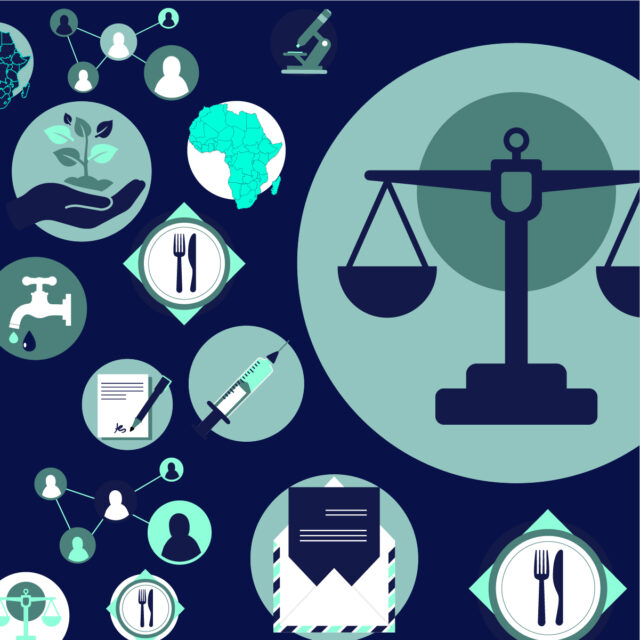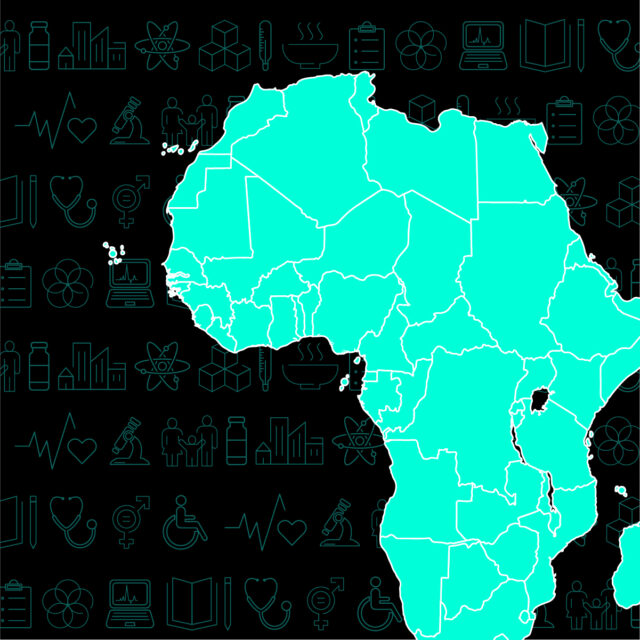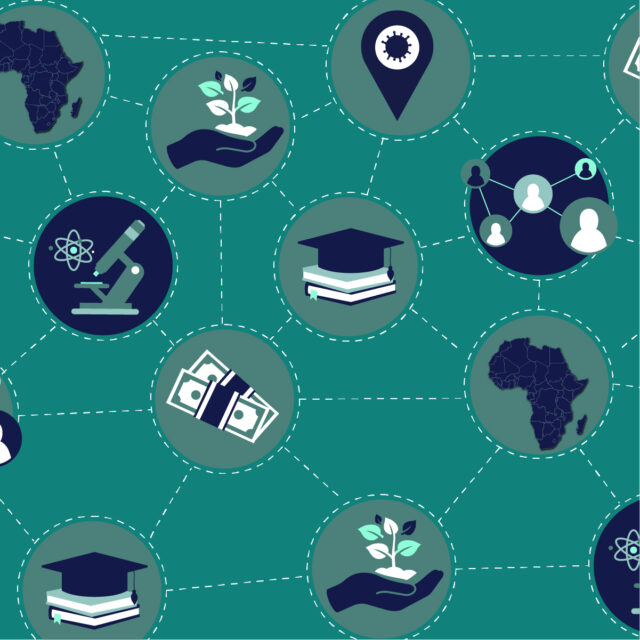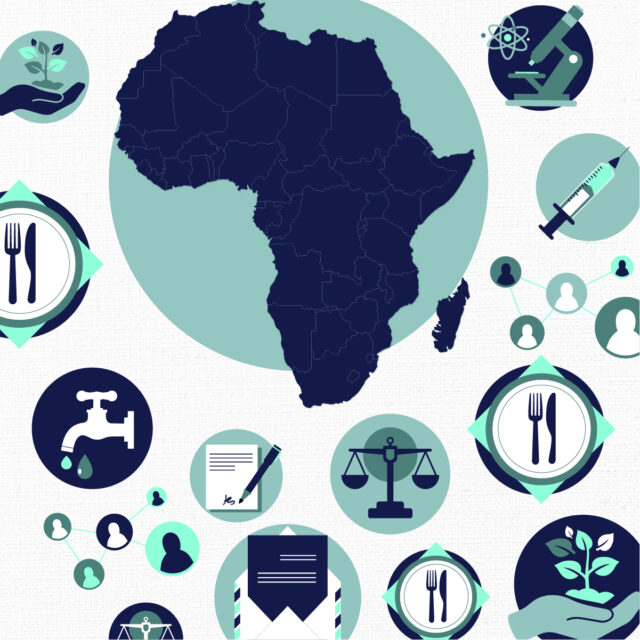Top news
Seismic waves: Russia’s war in Ukraine is going to weaken the economies of 143 countries this year — that’s 86% of the world — driven by rising food and energy prices. Likening the war to “seismic waves” rolling over the global economy, the IMF lowered its global growth projections from an estimated 6.1% in 2021 to 3.6% in 2022 and 2023 (and 3.8% for sub-Saharan Africa in 2022, see chart below). This could lead to greater risk of violence from heightened economic tensions in Africa, where emergency donor funding is under threat as countries prioritize aid to Ukraine. Experts warn that the crisis is just beginning.
Good deed spree: The World Bank announced $170 billion in crisis financing through June 2023, $10 billion more than its COVID-19 package — though only some of that is new funding. Germany pledged €6.3 billion to the IMF’s Resilience and Sustainability Trust, equivalent to 19% of the $36 billion SDRs it received last August. Meanwhile, G20 Finance Ministers called on the World Bank to begin the process of setting up a new Financial Intermediary Fund to increase financing for pandemic preparedness and response. They also endorsed channeling $100 billion SDRs to countries in need and called for Common Framework enhancements. Germany called for a global food security alliance at the Spring Meetings – modeled after COVAX, but reflecting lessons learned in the mediocre global COVID-19 response. And…(drumroll), the White House finally set a date for Biden’s second COVID-19 Summit, co-hosted by Belize, Germany, Indonesia, and Senegal on 12 May. 🥳
Toll tellers: The WHO increased its estimated COVID-19 death toll to approximately 15 million (as of 31 December, 2021). At least 4 million of those deaths are attributed to India, but the government insists its figure of just over half a million is accurate. While most of the WHO’s revised number stems from previously unaccounted for deaths as a direct result of COVID-19, it also includes indirect deaths caused by the pandemic’s disruptions to care. In Sierra Leone, the effort to count the true death toll of the pandemic is labor-intensive: surveyors are going door to door. Only a quarter of deaths in Sierra Leone are reported through the national vital statistics registry system, but those that do get reported have no cause attributed. This is a common problem: nearly half of all deaths globally are not officially recorded, highlighting one significant challenge of accurately counting COVID-19 deaths.
Not same-same, different: The differences between a Macron or Le Pen win in the French presidential election this Sunday will have significant implications for Africa. If Le Pen wins, France’s development aid would be tied to support for limiting migration flows or to French security and diplomatic objectives, a proposal that would result in aid being entirely cut for some countries, unfairly impacting the poorest populations. The return of artifacts stolen during colonial rule would also likely cease. Under Le Pen, France’s relationship with Russia would likely soften dramatically, impacting Western efforts to isolate Russia for its war in Ukraine, which is threatening food security in African countries. Elsewhere in tense election news: terrorist group al-Shabab claimed responsibility for an attack on Somalia’s Parliament as speakers were elected on Monday. The attack comes amidst increased political tensions following an attempt by former President Mohamed Abdullahi Mohamed to extend his term in office.
Outsource your humanity: Britain struck a harshly criticized agreement with Rwanda to send asylum-seekers to the East African country, specifically relocating migrants who have used “illegal or dangerous routes” to reach the UK. Britain has paid $158 million up front for the deal, which will initially last for five years (and which will likely face legal challenges). Officials in Rwanda tout the agreement as part of a national commitment to asylum seekers and refugees, but detractors (including Rwandan opposition parties) have said the move constitutes a shift of the UK’s responsibilities and international obligations onto Rwanda. Amnesty International UK, along with other human rights and refugee groups, have labeled the move an inhumane and cruel neo-colonial project.
Disaster warning: The heaviest rains in 60 years have devastated South Africa, killing at least 448 people and making it one of the deadliest natural disasters in the country’s history. It’s the latest in a spate of storms in Southern and Eastern Africa. Nearly 4,000 homes have been destroyed, more than 40,000 people are displaced, and some 600 schools have sustained $28 million in damage. The storm also shuttered business at one of Africa’s busiest ports, which handles 60% of South Africa’s shipments and transports goods as far north as the Democratic Republic of the Congo. While experts caution against attributing a single event to long-term warming trends, the storm dumped about 75% of South Africa’s average annual precipitation in just one day 👀 – and climate change will trigger similar events with increasing frequency.
Unwelcome consequences: Antibiotics are frequently requested and given without prescriptions in Uganda, with potentially detrimental long-term impacts. Researchers have found up to 100% antibiotic resistance in some bacteria, which could render now-treatable infections life threatening. Antimicrobial resistance is considered a global risk and may become the leading cause of death by 2050. In response, Uganda is one of 10 African countries to create an antimicrobial resistance action plan.
Check, mate: Shanghai has the largest container port in the world, and the nearly three-week shutdown of the city due to China’s COVID-19 policy will reverberate around the world. The number of ships waiting to load or discharge has reached staggering levels, doubling previous records set during the pandemic. The global supply chain has already been impacted, with some Tesla factories closed and Apple factories operating at reduced capacity. Analysts have called for China to abandon its zero COVID-19 policy, concerned by the impacts on national growth and the broader consequences of continued lockdowns.
Incalculable loss: 11,536 schools in Nigeria have been closed since 2020 due to abduction and security concerns posed by extremist groups, according to new reporting from UNICEF. The closures impacted approximately 1.3 million children in 2020 and 2021, and could lead to a lifetime earning loss of $3.4 billion – in addition to the “incalculable and irredeemable” invisible harm on victims of school attacks. Despite Nigeria’s ratification of the Safe Schools Declaration, UNICEF contends that schools and learners are not sufficiently protected. UNICEF has launched training programs to enable school committees to better protect students. The US government, meanwhile, has taken a different approach, agreeing to sell $997 million worth of attack helicopters to Nigeria to help tackle violence by extremist groups. The sale was paused last year following reports of Nigerian forces attacking civilians.
More reads
- A look at the gendered impacts of COVID-19 in South Africa. (The Conversation)
- Biden’s strategy on Russia will require a coalition bigger than the West, contends Sebastian Mallaby. (The Washington Post)
- It’s time for a new Bretton Woods framework, argues Rana Foroohar. (The Financial Times)
- A new study examines how the pandemic unleashed fear, anxieties, and prejudices on Twitter in Kenya and South Africa. (The Conversation)
- Olumide Abimbola and Zainab Usman outline how the G7 can support Africa’s climate agenda. (Project Syndicate)
- Batteries for electric vehicles could soon be in short supply. (Wall Street Journal)
- Hearings begin this week at the Central African Republic’s war crimes court. (RFI)
- The Russian embassy in Ethiopia has seen queues of men wanting to support Russian forces. (BBC)
The numbers
- 42.6%: the increase in fuel prices in Cape Verde over the past 12 months.
- 239: the number of reported COVID-19 deaths in Africa last week, down by 37% from the previous week.
- 1,440: how many school children were abducted in attacks on education facilities across Nigeria in 2021 alone.



